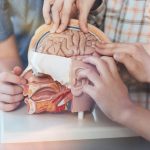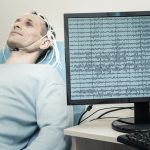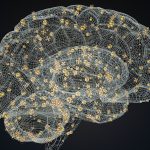Ketamine can switch off the brain temporarily
In a recent study conducted by scientists at the University of Cambridge, new light has been shed on how the drug ketamine affects the...
Scientists find way to wake up dormant brain stem cells
Researchers from Duke-NUS Medical School and the Mechanobiology Institute at the National University of Singapore have discovered a new method to activate dormant neural...
Severe menopause symptoms may impact brain health, shows study
With millions of people worldwide living with dementia and no cure in sight, researchers are keenly focused on finding ways to prevent or delay...
New study reveals how brain connections predict memory in old age
As we age, our memory tends to fade, affecting our ability to recall personal experiences.
For years, scientists believed that this memory loss was mainly...
New brain scan could help predict long-term effects of concussion
Researchers from Cambridge University have found that offering a specific type of brain scan called diffusion tensor imaging MRI (DTI-MRI) to patients with a...
Managing chronic pain in cerebral palsy
Managing pain is crucial for adults with cerebral palsy, but it's often not well understood. A study led by Dr. Mark Peterson at the...
Why cold sores don’t lead to brain infections: New research unveils key defense mechanism
More than half of us carry the herpesvirus, which causes cold sores. Despite its ability to infect nerve cells, it rarely leads to serious...
The effects of ketamine on brain activity you don’t know
A recent study from the University of Cambridge has uncovered two brain phenomena that might explain some of the side effects of ketamine, a...
Mindfulness training can alter consciousness, study finds
A recent study by researchers at the University of Cambridge has revealed that mindfulness training can lead to altered states of consciousness, such as...
Organizing your page may help organize your mind, study finds
Ever wondered how you manage to keep track of all the information you receive daily?
A recent study from Murdoch University suggests you might have...










